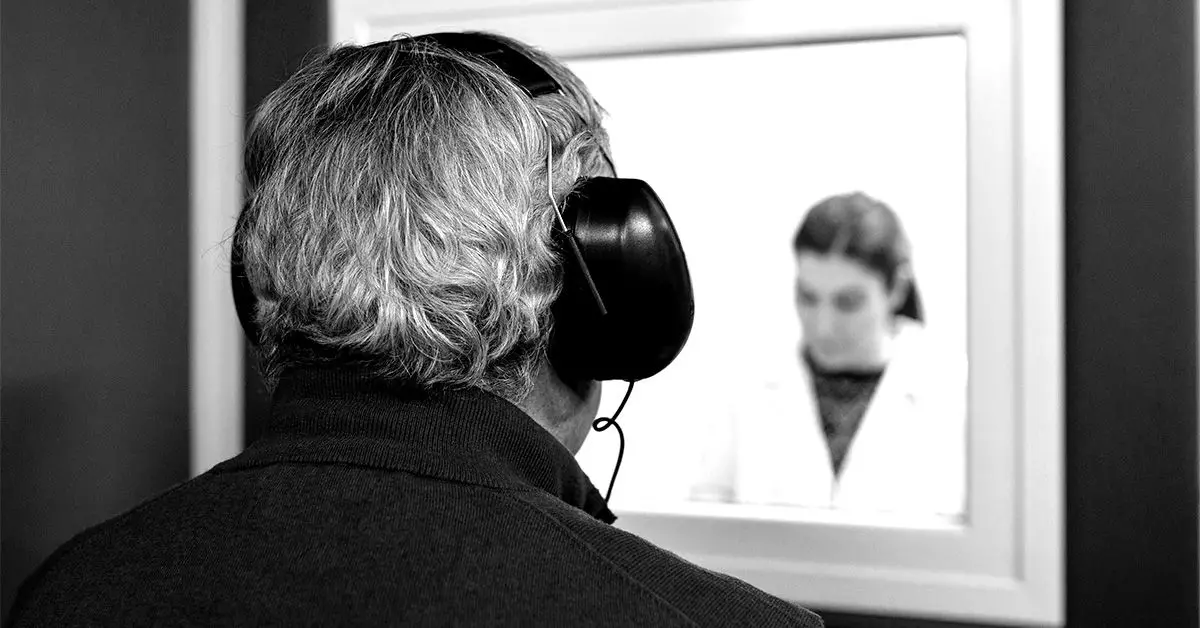In an increasingly aging global population, hearing loss is an often-overlooked yet pervasive issue affecting millions of individuals. It is estimated that approximately one-third of the population over 60 experiences some degree of hearing impairment, and this statistic becomes particularly alarming as it intersects with the growing awareness of cognitive health. As researchers delve deeper into the complexities of aging, the correlations between hearing loss and conditions like dementia come into sharper focus, raising critical questions about public health interventions and the importance of proactive auditory care.
As hearing loss remains a silent epidemic, countless older adults may never seek treatment or even acknowledge their condition. While many may dismiss hearing loss as a mere byproduct of aging, it bears a more ominous implication: significant cognitive decline. Studies suggest that untreated hearing loss can have a cascading effect on mental acuity, contributing to a higher risk of developing dementia over time.
The Convincing Evidence: Hearing Loss as a Risk Factor for Dementia
Recent research spearheaded by the Johns Hopkins Bloomberg School of Public Health sheds new light on the relationship between hearing loss and dementia risk. The findings indicate that even moderate degrees of hearing loss can elevate the risk of dementia by approximately 17%, with mild hearing impairments contributing an additional 16%. This is noteworthy because it suggests that a single overlooked health issue—hearing loss—has far-reaching consequences that may cumulatively affect a significant portion of the older population.
This study specifically employed rigorous methodology through the Atherosclerosis Risk in Communities Neurocognitive Study, which tracked community-dwelling adults across several demographic regions. By conducting thorough hearing assessments and longevity studies, researchers could draw connections between varying degrees of hearing loss and the onset of dementia. The conclusion is alarming: a sizeable portion of dementia cases may go hand-in-hand with hearing impairments.
The Mechanisms Connecting Hearing Loss to Cognitive Decline
Neuroscientific perspectives are beginning to shed light on the mechanisms at play in the connection between auditory and cognitive function. Changes in specific brain regions related to hearing can lead to diminished cognitive performance. When the brain receives inadequate auditory stimulation, as occurs with hearing loss, it may redirect its resources to compensate, ultimately impairing memory and executive function.
The concept of diminished cognitive engagement due to social isolation is particularly poignant. Older adults with hearing loss often withdraw from social interactions because communication becomes an arduous task. This social disengagement can create a feedback loop exacerbating cognitive decline, as the brain’s neuroplasticity is compromised, leaving it ill-equipped to fend off memory-related issues.
The Importance of Early Detection and Intervention
The implications of this research are stark; proactive measures such as routine hearing tests should be prioritized starting in midlife. Early detection of hearing loss can be critical in mitigating the risks associated with cognitive decline and dementia. The professional consensus suggests that incorporating audiometric assessments into healthcare routines for older patients could significantly improve quality of life, while simultaneously offering health practitioners additional tools for dementia prevention strategies.
Despite emerging data, there remains uncertainty about whether treating hearing loss can effectively reduce an individual’s risk of dementia. Yet, the general consensus holds that enhancing auditory function through interventions like hearing aids could promote better communication and boost life satisfaction. As researchers navigate these complexities, the emphasis should also be placed on providing older adults with the knowledge and resources to voice their concerns about hearing health to healthcare professionals.
A Holistic Approach: Consideration of Sensory Health
The interconnectedness of various sensory impairments—such as hearing and vision loss—further complicates our understanding of age-related cognitive decline. As multiple sensory challenges often manifest concurrently, the effects on cognitive function can be compounded. There’s an urgent need for a comprehensive approach to sensory health that acknowledges the interplay between auditory and visual impairments.
By broadening the scope of research to examine the cumulative impact of sensory deficits on cognitive health, we can develop more effective public health guidelines and dementia prevention strategies. Addressing sensory health collectively can provide a roadmap for older adults to maintain their cognitive reserves while ensuring they remain engaged and socially connected.
Hearing loss is far from being a mere inconvenience; it is a potential precursor to far graver cognitive issues, including dementia. As the healthcare system adjusts to an aging population, prioritizing auditory health can yield dividends in enhancing the quality of life for millions of seniors. The message is clear: hearing loss deserves the attention of researchers, health professionals, and the larger community alike.

